Books
Books

Les Guérillères (English edition)
Les Guérillères imagines the attack on the language and bodies of men by a tribe of warrior women. Among the women’s most powerful weapons in their assault is laughter, but they also threaten literary and linguistic customs of the patriarchal order with bullets. In this breathtakingly rapid novel first published in 1969, Wittig animates a lesbian society that invites all women to join their fight, their circle, and their community.
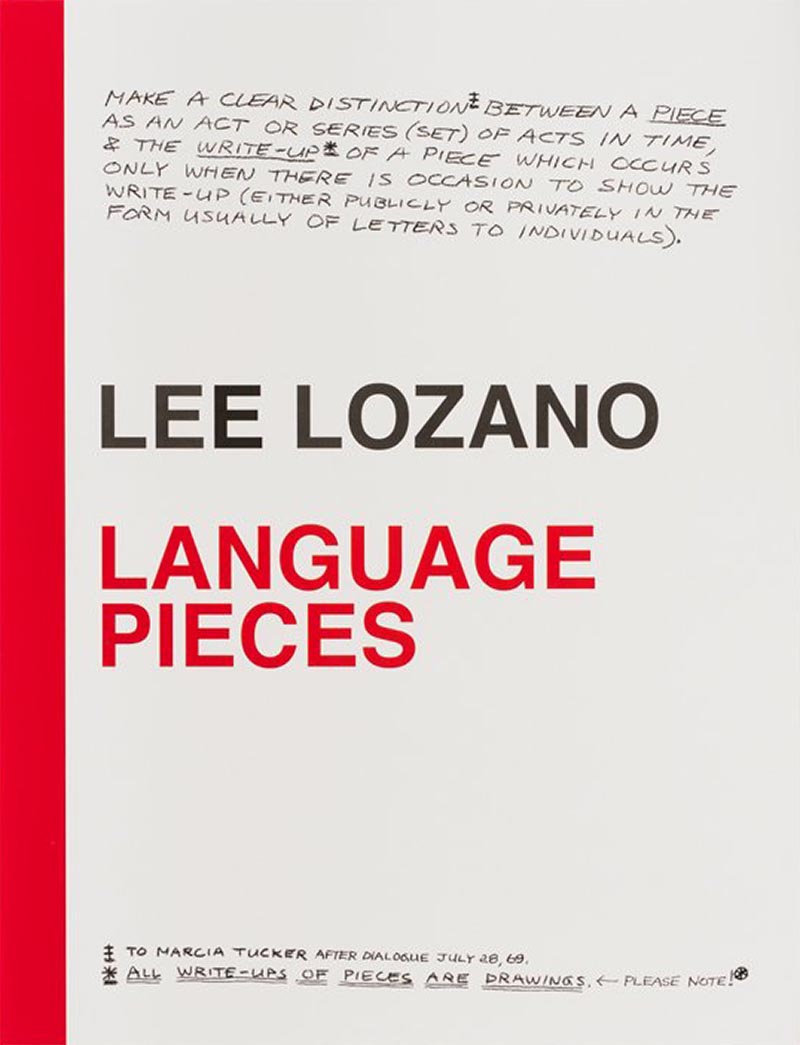
Language Pieces
In the late 1960s, Lee Lozano conceived of and executed a series of 'language pieces,' written in the pages of her notebooks, consisting of rules and parameters for the actions that would constitute a piece. From offering money to house-guests to smoking as much marijuana as possible, Lozano boldly tested social norms, culminating in two of her most famous works: 'General Strike Piece' (1969), which saw her retreating from the art world completely, and 'Decide to Boycott Women' (1971), in which she ceased engaging with all members of her own gender.

Queer Direct
Queerdirect is an LGBTQI+ Artist support network, curatorial platform and arts programme. Initiated by Gaby Sahhar in 2017. Co-run With Lily Cheetah. Queerdirect hold regular events and curate exhibitions around London and provide queer artists with a platform and support. Queerdirect is the UK’s first contemporary arts platform and project space dedicated to queer arts.
This is the first edition, September 2019.
A5 perfect bound publication, 81 pp., published by Queerdirect & Camp Books and featuring 31 LGBTQIA+ artists working in and around London.
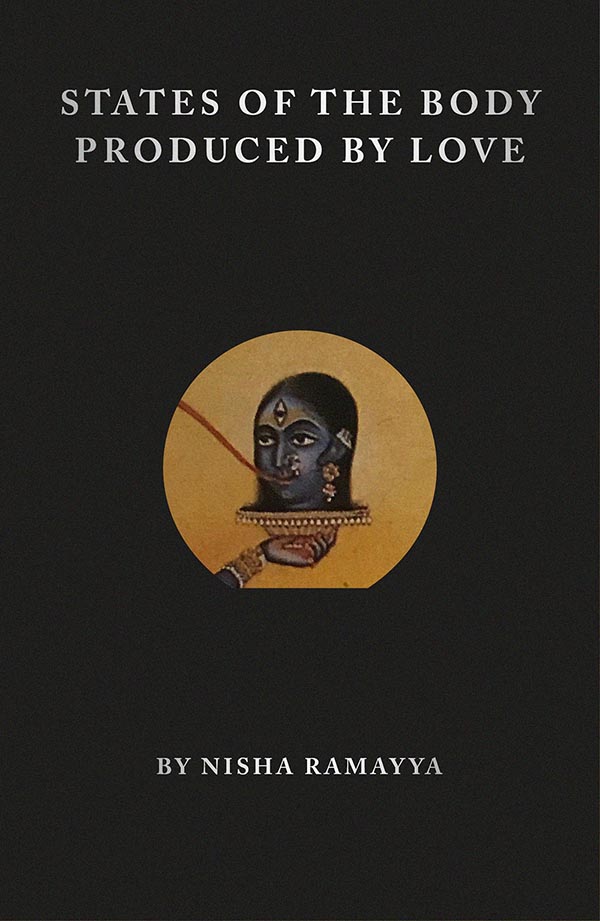
States of the Body Produced by Love
States of the Body Produced by Love is a modern mystical journey through love – a many-headed snake twisting through devotion, sacrifice and the dream of returning home.
In her visionary debut, Nisha Ramayya conjures an opalescent world by way of Tantric ritual and myth. Thousand-petalled lotuses bloom inside skulls, goddesses with dirty feet charm honeybees, strains of jazz standards bleed into anti-national anthems. States of the Body Produced By Love weaves essays, poetry and images together to offer fierce meditations on diasporic identity, language and resistance. From grief to bliss, this book explores the many states of the body seized by love in an incantation that never leaves its hold.

The Carrier Bag Theory of Fiction
In The Carrier Bag Theory of Fiction, visionary author Ursula K. Le Guin tells the story of human origin by redefining technology as a cultural carrier bag rather than a weapon of domination.
Hacking the linear, progressive mode of the Techno-Heroic, the Carrier Bag Theory of human evolution proposes: ‘before the tool that forces energy outward, we made the tool that brings energy home.’ Prior to the preeminence of sticks, swords and the Hero’s killing tools, our ancestors’ greatest invention was the container: the basket of wild oats, the medicine bundle, the net made of your own hair, the home, the shrine, the place that contains whatever is sacred. The recipient, the holder, the story. The bag of stars.
This influential essay opens a portal to terra ignota, where the possibilities of human experience and knowledge can be discovered anew.
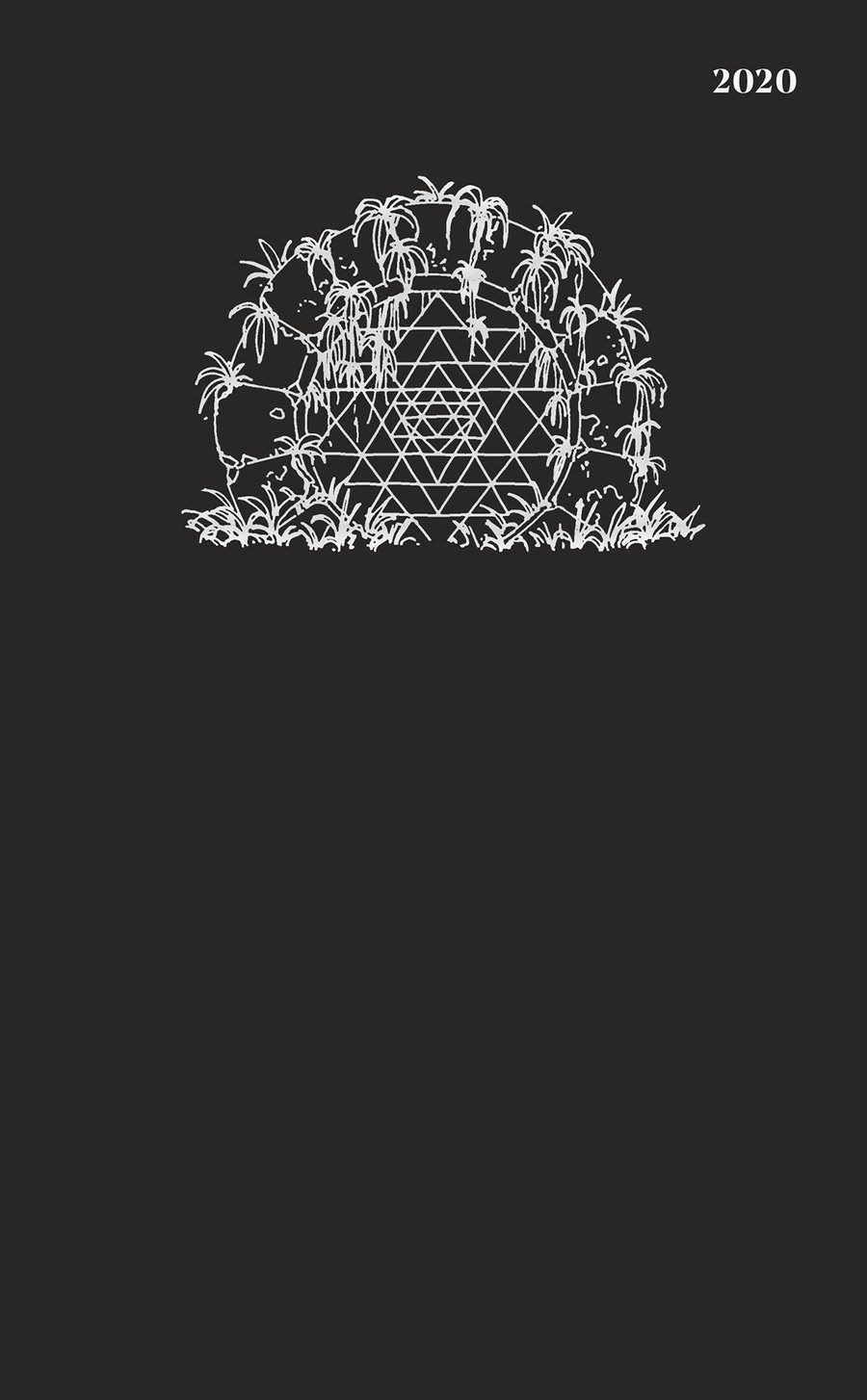
Ignota Diary 2020
The Ignota Diary is a tool for discovery in the practice of everyday life. This beautifully designed diary and week-to-view planner is filled with historically significant magical and sacred dates from around the world. Drawn from events such as the Buddha’s birthday, esoteric festivals and artistic and occult history, the diary touches on the lives of characters such as Ursula K. Le Guin, Zora Neale Hurston, Carl Jung, Simone Weil, Aleister Crowley, George Bataille, Timothy Leary, Hilma af Klint, Saint Hildegard of Bingen, William Blake and W.B. Yeats.
The diary provides full astrological navigation for 2020 with an overview of the year, a birthchart template and guides to moon magic, houses, planets and symbols. Key transits, retrogrades and lunar phases, noted throughout the planner, allow you to organise your life in alignment with the astrological weather, visible at a glance. A global map showing sacred sites provides inspiration for transformative pilgrimages.
Rituals by the acclaimed artist Jesse Darling and poets CAConrad, Bhanu Kapil and Nisha Ramayya and seasonal tarot spreads by practitioners including adrienne maree brown and Rachel Pollack, author of the bestselling tarot guide 78 Degrees of Wisdom, offer guidance and space for reflection throughout the year. Additional sources of inspiration include guides to Soji cleaning by Zen monk Shoukei Matsumoto, author of the bestseller A Monk's Guide to a Clean House and Mind, and guided meditation by Julian Vayne of the Psychedelic Museum.
To support a holistic approach to health and wellbeing, an appendix contains guides to healing herbs, key acupressure points, the chakra system and Ayurvedic medicine, as well as a directory of key magical places, shops and websites

of sirens, body & faultlines
of sirens, body & faultlines is a book of prophecy against this Brexit era, rising from a post-2008 London, where crisis and austerity meet the vanity projects of the super-rich. Committed to the immediacy of a present that is precarious and under surveillance, of sirens... attends to queer, transfeminist and people of colour counter-memories and histories. It seeks new expressions of desire and modes of breath, pushing against the gravities that would rather these lives and worlds disappear.
While arguing with the radio may seem futile, syntax, punctuation, grammar and the page must still all be mobilised to help create new conditions of possibility – for collectivity, for poetry to speak. Raha’s exceptional, experimental, queer lyric mobilises all aspects of language to reveal contradictions of capitalism and defuse populist rhetoric. This is a writing of city life against the flows to capital; labouring bodies speaking back to the demands of work and the fictions of xenophobic politicians. It concerns herstory, transfeminism, collectivity; the everyday of South East London, transformation and decolonisation, through counter-memories, anti-memoir, and a trans poetics.
"Nat Raha has written some of the most exciting poetry of the last decade. Transfeminist, communist, revolutionary – with great quickness and nimble intensity, her syllables and survival codes dash through police-lines as high-level transmissions signalling absolute solidarity, insisting that other lives are still possible. Originally published as a series of home-made pamphlets that seemed to come as much from post-punk zine culture as from avant-garde poetics, it's good to see them gathered here in one place for the first time and as a body of evidence of a culture of struggle. These poems do not merely comment on that struggle, but emerge from within it. They are poems that break open a space in which to think through what has happened, who we have been, and what has been done to us. These are fearsome times. Raha writes poetry that acknowledges that fear and refuses to flinch in the face of it, which is in itself an act of the fiercest solidarity." – Sean Bonney
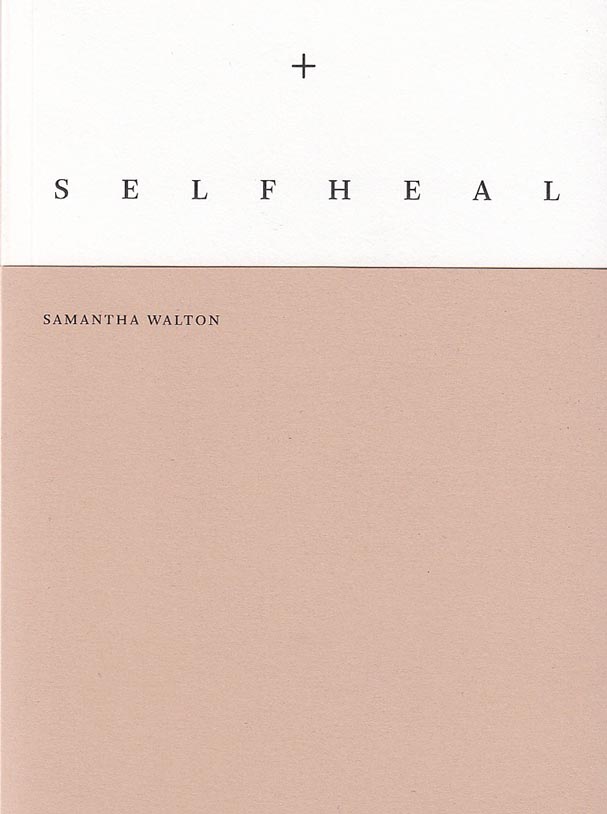
Self Heal
Self Heal brims with riotous and tender experimental lyrics on love, work, protest, and survival among haunted interiors and post-industrial landscapes. It explores processes of destruction and healing, testing the possibilities of self and collective care through meditations on poetic artifice and the architecture of identity, all with a thrilling linguistic strut and twinklings of mordant wit.
Samantha Walton co-runs Sad Press, which specialises in chapbooks and small press editions, and has previously published five pamphlets including Animal Pomes with Crater Press. This is her debut collection.
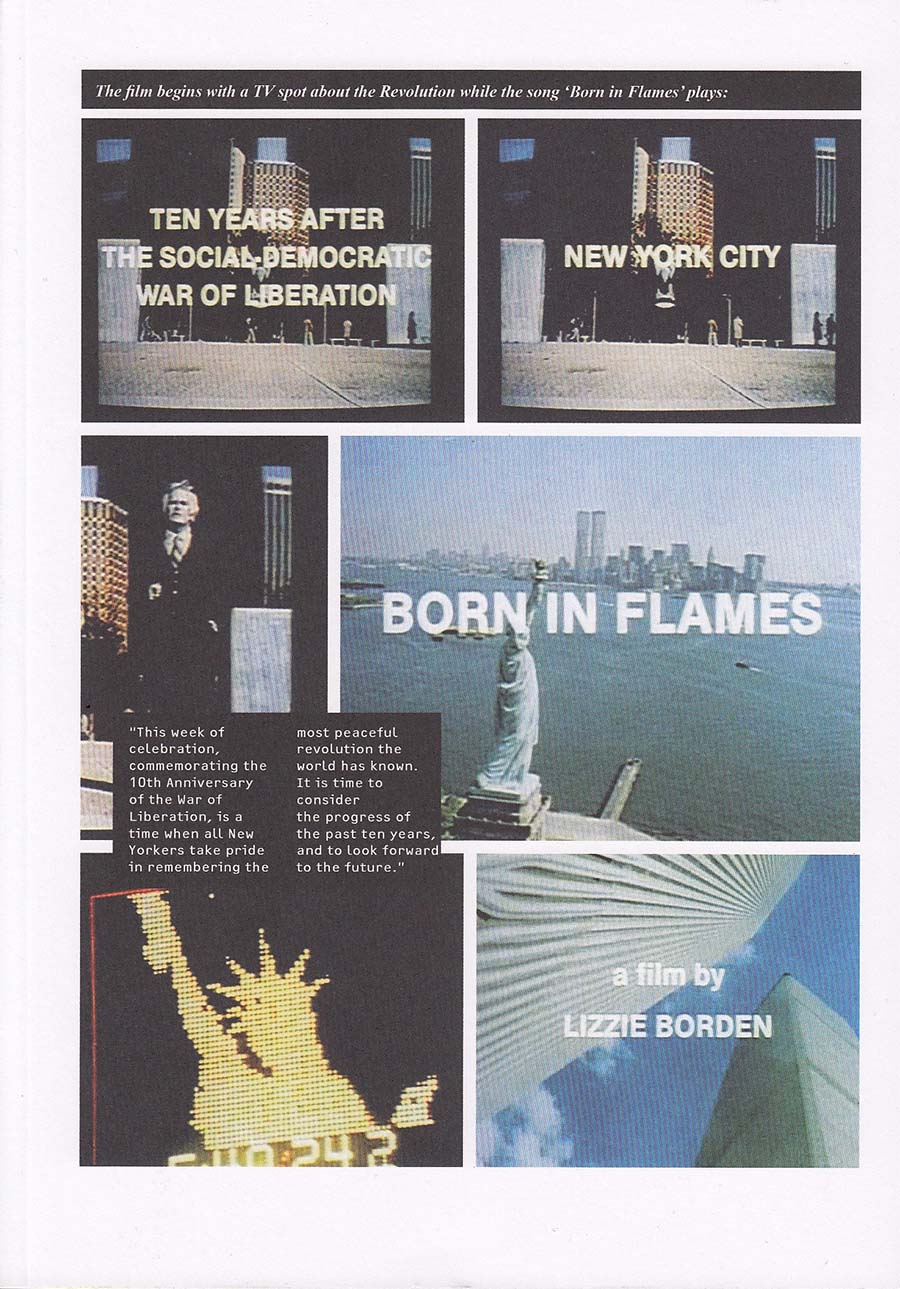
Born in Flames
Born in Flames – the publication – is the complete authorised graphic translation of Lizzie Borden’s mythical 1983 film Born in Flames. Kaisa Lassinaro’s post-facto screenplay captures all the political energy and visual brilliance of Borden’s film, which describes a futuristic society (eerily similar to our own) where the achievements of a past revolution are threatened by reactionary sexist forces.
The published version of Born in Flames allows for a frame-by-frame analysis of the film’s complex plot and soundtrack, with songs by The Bloods and Red Crayola. Included is an interview with Borden conducted by Lassinaro, in which the filmmaker looks back on the making of her film.
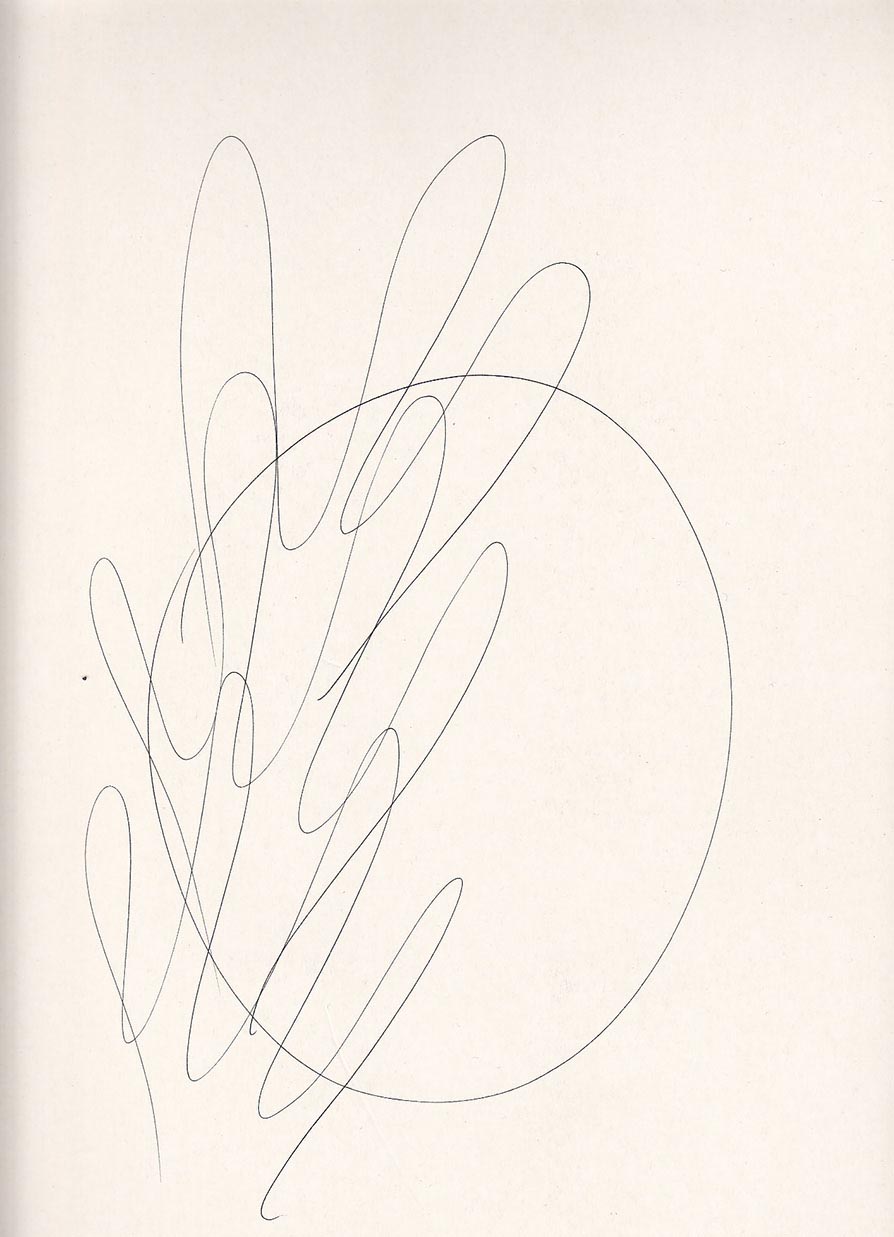
Hand Reading Studies
For 'A Studio in Hand-Reading: Charlotte Wolff' Valentina Desideri transformed Kunstverein’s space into a Studio – a place that generates knowledge through different modes of being together. Throughout the exhibition, Desideri invited participants as well as visitors to gather for readings and in study.
The Studio – and its bar – were open for readings during Kunstverein’s regular opening hours and punctuated by weekly contributions to the study by the invited guests and artists. 'Handreading Studies' picks up where the project left off, bringing together a variety of materials and publications that were generated in or reverberated from the Studio.

Enn Gramaten
Luke Williams, Natasha Soobramanien
A cautionary tale of academic privilege and misadventure in Diego Garcia via a Kreole translation, and parallel live chat.
Dialecty, conceived by Maria Fusco with The Common Guild, considers the uses of vernacular forms of speech and writing, exploring how dialect words, grammar and syntax challenge and improve traditional orthodoxies of critical writing.

Thresholds: A Prosody of Citizenship
‘In De vulgare eloquentia, Dante developed a poetics of the vernacular – the collectively accessible speech of the household and the street, distributed unilaterally rather than intentionally acquired via a disciplined pedagogy of grammar, and transformed in open bodily exchange, irrespective of social position, gender or rank. “The vernacular,” Dante says, “[is] the language which children gather from those around them when they first begin to articulate words; or more briefly, that which we learn without any rules at all by imitating our nurses.” A vernacular is not structured according to a valuing hierarchy or an administration of history; it is improvised in tandem with the rhythmic needs and movements of a present-tense yet tradition-informed body among other bodies, each specific. There is no general vernacular; it is intrinsically grammarless. Vernacular speech can only ever begin and can never achieve closure. Refusing spatial propriety, it crisscrosses institutions. In Dante’s definition, it is what’s spoken by women and children, thus it is the first, and natural language: “The whole world uses it through its diverse pronunciations and forms”.’ – from Thresholds: A Prosody of Citizenship.
Lisa Robertson’s reflection of political subject formation, through poetry and vernacular forms, acts as a critical anchor for the ideas and experiments published in this new series, Dialecty.
Dialecty, conceived by Maria Fusco with The Common Guild, considers the uses of vernacular forms of speech and writing, exploring how dialect words, grammar and syntax challenge and improve traditional orthodoxies of critical writing.

Disappearing Curtains
This book sees the re-emergence of the seminal 1970s magazine Curtainsedited by British artist/writer, Paul Buck.
With its early promotion of French writers such as Georges Bataille, Maurice Blanchot, Jacques Derrida, Jean-Pierre Faye and Edmond Jabès, Curtains’ re-appearance arrives after an exhibition at Focal Point Gallery in 2012 that was recreated from an earlier 1992 work at Cabinet Gallery around the concept of ‘disappearing’.
The invited contributions come from thirteen artists with whom the editor has engaged over the years. In addition, Buck has returned to pull threads from the earlier editions of his magazine to explore ideas with writers encountered in the intervening years, making all appear in a consolidated grouping as a final gesture, one that refuses to disappear.
Contributions include those by: Kathy Acker, Susan Hiller, Liane Lang, Lucy McKenzie, Richard Prince, Miroslav Tichy, Sophie von Hellermann, and many others.

Silver Bandage
The Happy Hypocrite – Silver Bandage gathers together new kinds of writing about ‘vibes’, those often unspoken energies of desire and aversion that move between people, palpable but traceless, hard to prove. The messages sent by your gut that you can’t always interpret, beyond an urge. What is intangible – vibes, feelings and reflexive responses like blushes, fidgets, slumps in posture, fluctuations in voice – is now targeted by invasive technologies of affective measurement. How can writing resist this regime of quantification?
With an introduction by Maria Fusco, contributions and new work by CAConrad, Mel Y. Chen, Adam Gallagher, Alexandrina Hemsley, Rebecca Jagoe, Jessa Mockridge, Natasha Papadopoulou, Naomi Pearce, Parsa Sanjana Sajid, Patrick Staff, Daniella Valz Gen, and Hypatia Vourloumis. This issue’s archive is dedicated to Katerina Gogou.
Erica Scourti is an artist and writer, born in Athens and now based mostly in London, whose work explores biographical writing and bodily inscription in the performance of subjectivity. Her writing has been published in Spells, Ignota (2018) and Fiction as Method, Sternberg (2017), among others.

Stray: A Graphic Tone
Shannon Ebner, Susan Howe and 1 more
A fourteen-track vinyl LP featuring poems of American poets Susan Howe (b. 1937) and Nathaniel Mackey (b. 1947) as produced by visual artist Shannon Ebner. Juxtaposing historic and recent material from 1991 until 2018, the work brought together here examines the two writer’s lifelong preoccupation with subjects adrift in narratives of dispossession both real and imagined. Liner notes contain excerpts of original interviews as well as reproductions of the poets’ published materials.
According to Ebner, “STRAY: A GRAPHIC TONE is the full-length version of what I started in 2016 when I began seeking exchanges with these two poets. I was drawn to their works for their experiments with poetic form – for their politics of poetic form, to be exact – for their poems’ stray figures and stray errant marks.”

Treatment
Operating on the peripheries of a pathological discourse, Treatment penetrates the interstices of modern queer consciousness to medicate a multiheaded body of work. With no cure in sight, the text moves from violence, cowboys, iconography, illness and image to the death of Yves Klein and a fear of dentistry. Bridget’s reflections pose a dissection of novelistic cliché that attends to the repressed remnants of a queer romance. Played out in an interpersonal run of vignettes or “treatments,” rather than any death of the novel Treatmentpropositions a mischievous and travestying performance anchored in putrefaction. A serious play with the decay of forms, Treatment is a rendered reading of our ability to talk through the process of degradation and an ironized analysis of the desire to write it down.
In Bridget’s “mouth-theatre” sit Allan and Allen—two precarious, spectral characters set against an eerie backdrop of clinical isolation. Framed by a nameless narrator, these mirrored figures undergo forty text-treatments across four artificially generated days that survey their feelings of angst, adulation and disorientation against the slow tick of a clock. A mash-up of love story, pornography, art criticism, literary appropriation, and essayistic meditation, Treatment pushes an anatomical body to its limits in a parodic portrayal of a mouth on the hunt for a tongue and its teeth.

A Family in Brussels
Filmmaker Chantal Akerman presents A Family in Brussels, a fictional stream-of-consciousness text encompassing multiple subjectivities and laced with autobiographical references. This is the first English-language publication of the work, which Akerman wrote and first performed as a monologue in Paris and Brussels. The accompanying recording documents the theatrical reading that took place at the Dia Center for the Arts, New York, in October 2001. The listener can hear Akerman's singular voice as she muses on familial relations, communication, closeness, and distance.
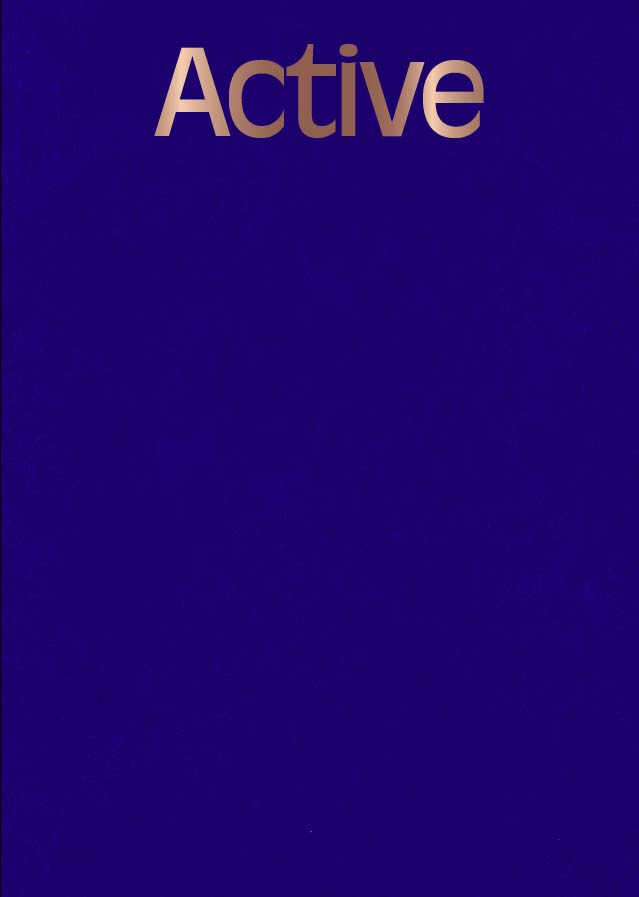
Active Art
Barbara Sirieix, Maija Rudovska and 1 more
In this book, the 1923 manifesto “Active Art” by Latvian philosopher Andrejs Kurcijs triggers a series of responses by writers, artists and curators on the notion of activism, past and present: art for political purposes, art for its own purpose or art with no purpose.
All the texts collected in this volume aim at considering the active part of writing according to the definition given by Kurcijs. It is true of the book design by Laure Giletti and Gregory Dapra too. Contributors include curator Rebeka Põldsam, artists Evita Vasiļjeva and Eva Barto, writers Bella Marrin and Robert Glück, and poet Laura Boullic. It also includes the reprint of an essay from 1987 by James Baldwin, commissioned by the African Center in New York, and an in-depth conversation between the editors of the books and philosopher Ainārs Kamoliņš.
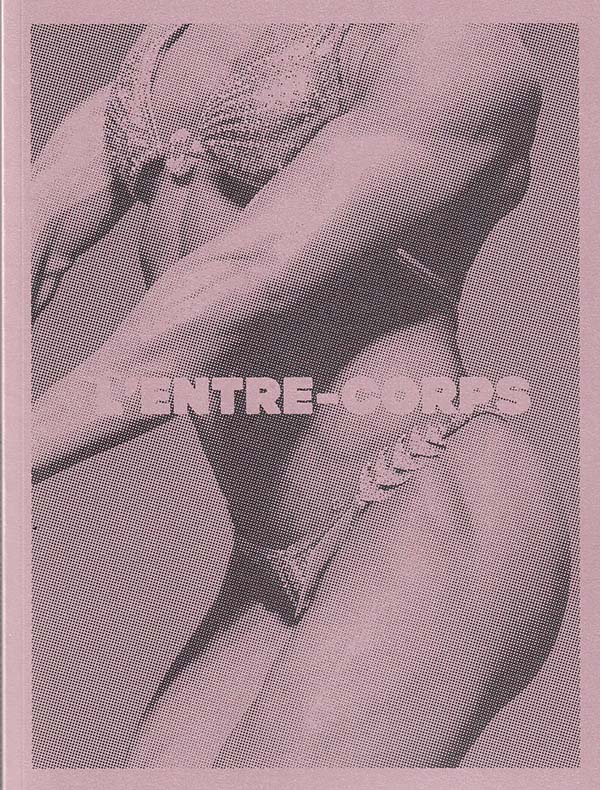
L'entre-corps
Laure Cottin-Stefanelli, Peter Snowdon
Centré sur la mise en jeu du corps filmé et du corps filmant dans leurs pratiques cinématographiques respectives, la Conversation de Laure Cottin Stefanelli et Peter Snowdon a commencé par une présentation croisée de leurs films à Bozar en discussion avec Septembre Tiberghien et s'est cloturée par une exposition intitulée INNER SENSE - Bodies At Work, à la galerie de l'ERG de décembre 2018 à janvier 2019.
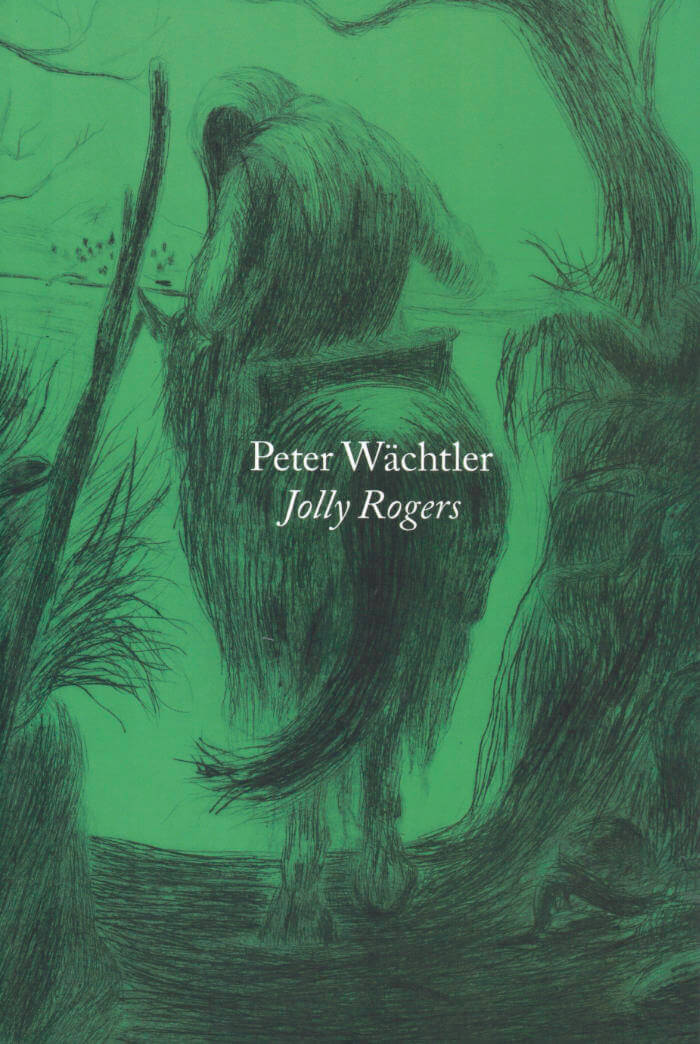
Jolly Rogers
Jolly Rogers is a collection of Peter Wächtler's latest short texts, written in preparation of his two solo exhibitions at Bergen Kunsthall and Kunsthalle Zürich (both 2019), and combined with a nearly complete collection of the artist's drawings and prints from recent years.
The texts operate like vignettes to a larger story, and the images as unreliable illustrations to the narrative. However, the larger story never really is revealed. Each individual text, each single work, articulates itself by means of an intense focus. It is as if we were suspended in a continual zooming motion, as if the artist and author wanted to tell and show it all. But alas, such is life under the microscope: always larger-than-life, but at the wrong scale at a time driven by individual interests, self-optimization, and egos that stage themselves simultaneously as victims and disruptors.
Peter Wächtler works in a variety of media: bronze, ceramics, drawings and video. But in many ways “stories” could be described as his main artistic material. His works often evoke a narration, with animals or human figures in animated states. They are made in ways that use and adapt elements of fiction and folklore, relating to specific traditions and common tales, and materialize the ways of telling a story as much as the story itself.
Born 1979 in Hannover, Peter Wächtler lives and works in Brussels and Berlin.

Second Sex War
Sidsel Meineche hansen, Robert Leckie
Stemming from a series of works by Sidsel Meineche Hansen, this monographic catalogue offers a range of perspectives on urgent issues around gender, sexuality and labour in the digital age.
This book orbits “Second Sex War”, a series of works by Sidsel Meineche Hansen addressing political and ethical questions arising from the use of digital bodies in contemporary visual culture and the means of production and distribution for these commodities. Realising that the same avatars are used across the pornographic, gaming and cultural industries, she investigates the working conditions and relationships that structure these fields. Through numerous essays and conversations, Second Sex War, the book, emphasises her collaborations with various practitioners (animators, musicians, writers) and the way they have inflected her practice. Media theorist Helen Hester (author of the Xenofeminist manifesto) reflects on the limitations of the porn industry and the use of female avatars. Artists collective Radclyffe Hall talks to photographer Phyllis Christopher about early lesbian erotica magazine in the 1980s. Linda Stupart compiles quotes by Sara Ahmed, Kathy Acker and Ursula K. Le Guin to consider what is radical sex today. Artist Hannah Black's contribution, which opens the publication, reads like a manifesto for artists being crushed under the weight of current political circumstances.
Edited by Sidsel Meineche Hansen and Robert Leckie.
Texts by Robert Leckie, Hannah Black, Helen Hester, Phyllis Christopher & Radclyffe Hall, Linda Stupart, Josefine Wikström. Entretiens with Helena Vilalta, James B Stringer, Melika Ngombe Kolongo (Nkisi) by Sidsel Meineche Hansen.

The Helens of Troy, New York
Profiles of all the women named Helen in Troy, NY, with poems and images, mixing the classical with the ordinary and delightful intelligence with irreverence.
'everybody died there’s nothing more to say my hair’s braided like a family i took off, it was fun, i loved it if you did something wrong, they punished you one helen is enough, trust me'
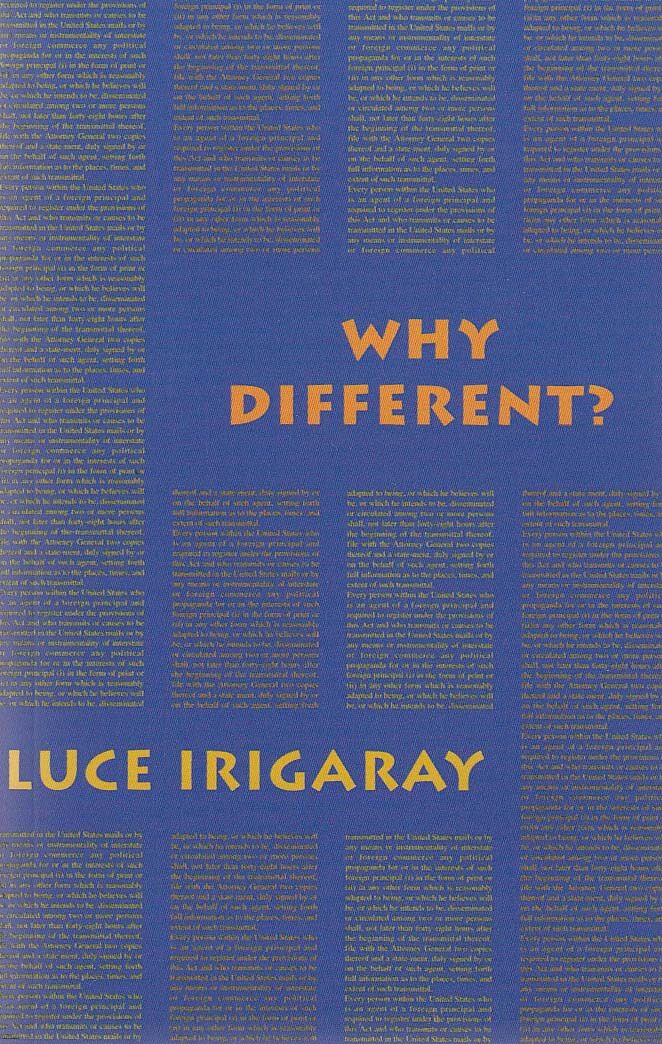
Why Different
A collection of interviews that deal explicitly with the relationship between daughter and mother, the sexuation of language, the symbolic order, and the importance of both history and philosophy for the liberation of the feminine subject.
For Luce Irigaray, one of the most original French feminist theorists, deconstructing the patriarchal tradition is not enough. She admits that it is not an easy task, but she believes that it is necessary to also define new values directly or indirectly suitable to feminine subjectivity and to feminine identity. She begins this project by analyzing and interpreting the absence of the feminine subject in the definition of dominant cultural values. She then wonders how these new values can be constructed without simply reversing the roles. Far from implying a hierarchy, difference affirms the coexistence and fruitful encounter of two different identities. These two heterogeneous identities, masculine and feminine, are not socially but ontologically constructed and describing the feminine requires establishing methods other than those already used by the masculine subject. Why Different? is a collection of interviews, conducted in both France and Italy, that deal explicitly with the relationship between daughter and mother, the sexuation of language, the symbolic order, and the importance of both history and philosophy for the liberation of the feminine subject. In Why Different? Irigaray elaborates on issues brought up in her other books, Speaking is Never Neutral, I Love to You, Thinking the Difference, and To Be Two and brings them to fruition.
Edited by Sylvère Lotringer.
Translated by Camille Collins.

A history of the world as it has become known to me
Publication focusing on Cantor's final project Pinochet Porn (2008–16)—an epic experimental film taking the form of a soap opera about the intimate life of people under the military dictatorship of Chile. A dramatic, transgressive and explicitly feminist work, embodying and radically extending Cantor's multifaceted artistic practice.
Ellen Cantor combined ready-made materials with diaristic notes and drawings to probe her perceptions and experiences of personal desire and institutional violence. This book is concerned with, and a document of, Cantor's work through the lens of Pinochet Porn (2008–16) and its making—an epic experimental film embodying and radically extending her multifaceted artistic practice. Taking the form of an episodic narrative about five children growing up under the regime of General Augusto Pinochet in Chile, and shot between her dual hometowns of London and New York, history is observed through Cantor's fictive speculations on private experience within a totalizing political order. A history of the world as it has become known to me brings together writings and archival materials of Cantor's, including a reproduction in full of her drawing-based script Circus Lives from Hell (2004), alongside contributions by writers, artists, collaborators, and friends reflecting on Cantor's practice, Pinochet Porn, and a singularly transgressive vision: explicitly feminist, remorselessly emotional, dramatic in tone, and, as Cantor herself liked to put it, adult in subject matter.